Blogging About Failure - Part 2: The RPGs I Couldn't Find The Energy To Complete Or Write About (Until Now)
By ZombiePie 8 Comments
Author's Note: This is part two of a two-part series in which I look at every game I played or tinkered around with during 2022 but did not manage to finish or failed to write about on the site. In part one, I discussed the adventure games that either "broke" me or were sources of writer's block. For this episode, I will review the RPGs that I played but struggled to jot down my thoughts due to a lack of confidence in my ideas or a scarcity of time. If you missed the first episode, a link is available below!
Also, there are moderate spoilers for some of the games discussed in this blog. You have been warned!
I Played These Games And Want To Talk About Them in 2023
Dragon Quest I & II
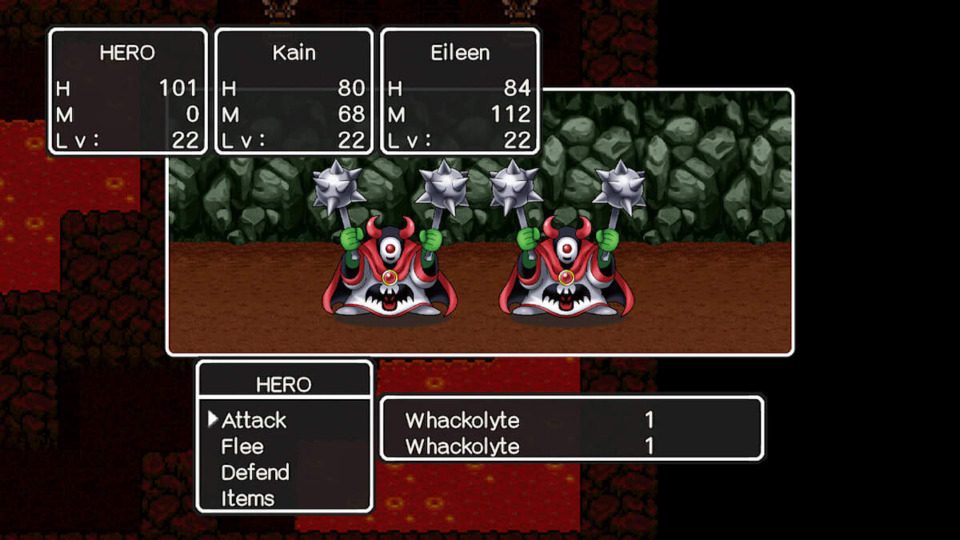
To call Dragon Quest an "establishment" is an understatement. The franchise has informed the direction of the JRPG genre for over thirty years. Unfortunately, its recent penchant for "playing it safe" has caused it to be a target among the JRPG enthusiast crowd. Oh, and every modern Dragon Quest game takes over forty hours to complete, and its iconic soundtrack and melodies were composed by a war crime-denying pile of human garbage. However, there's no doubt it is a cultural landmark, and I decided to give the first two entries in the series a go to see when exactly Dragon Quest became Dragon Quest. The answer is probably Dragon Quest III, but I was immediately shocked by two things when I played these relatively basic and creaky games. First, they are amazingly well-made games that offer incredible "baby's first JRPG" experiences with a low barrier to entry. Because the sizeable open-world design of the series did not come into the picture until the caravan system in Dragon Quest IV, the first two games have incredibly straightforward exploration bits that don't always tire your nerves. Second, and this was the real kicker, the first two games clock in under twenty hours. The first game can be quickly completed South of ten hours if you don't get tied up in the dungeons, and that makes it an easy recommendation to any would-be video game historians.
However, the legacy of Dragon Quest I and II is not what I want to write about on this site. In the annals of JRPG companions, there have been some doozies. Ken Amada makes Persona 3 actively miserable, and I have consistently called Hope Estheim in Final Fantasy XIII the ultimate "anime shit boy in video game history." There have been some terrible JRPG companions, and when you think you hit rock bottom, the genre finds a way to lower the bar even further. However, I present the Prince of Cannock in Dragon Quest II as the single worst JRPG companion in video game history. The Prince of Cannock gets special commendations for being a nothing character, a total liability for the entire game, and only one of three playable characters. To continue from that last point, because he's a master of none AND a glass cannon, you essentially play the game with two characters with no alternatives. Also, you don't get revival options until much later. So, when he dies, you need to drag his ass back to a church to revive him. Oh, my second guy died halfway into a dungeon? It is time to turn around and lose all of my progress leading up to this point! Worse, the fact he's a wimp AND never improves is a fact the game and its makers knew because his official art depicts him in a coffin while being dragged by the Princess of Moonbrooke.
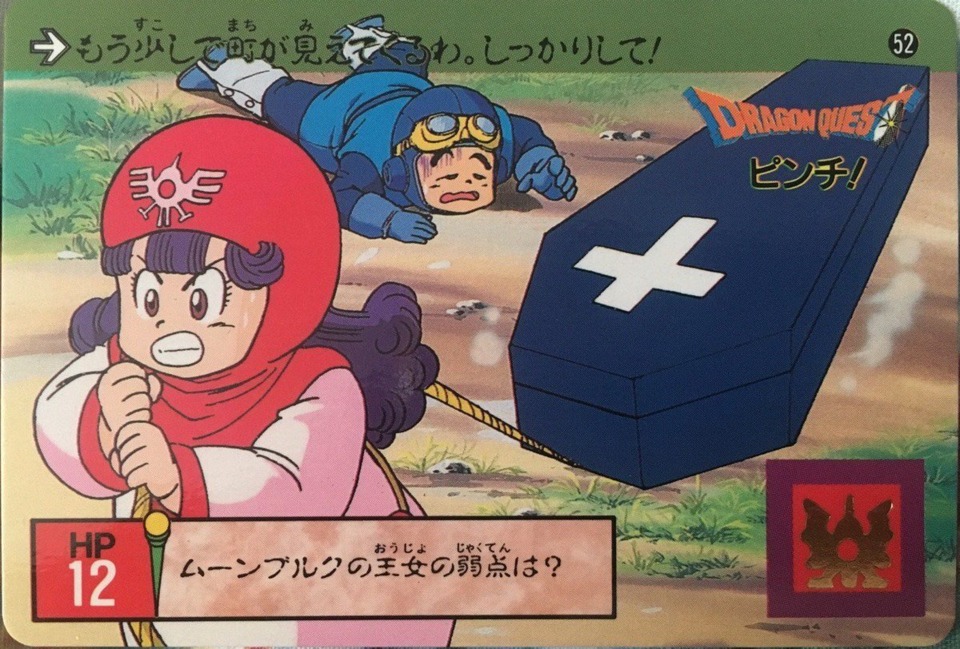
Gauntlet IV
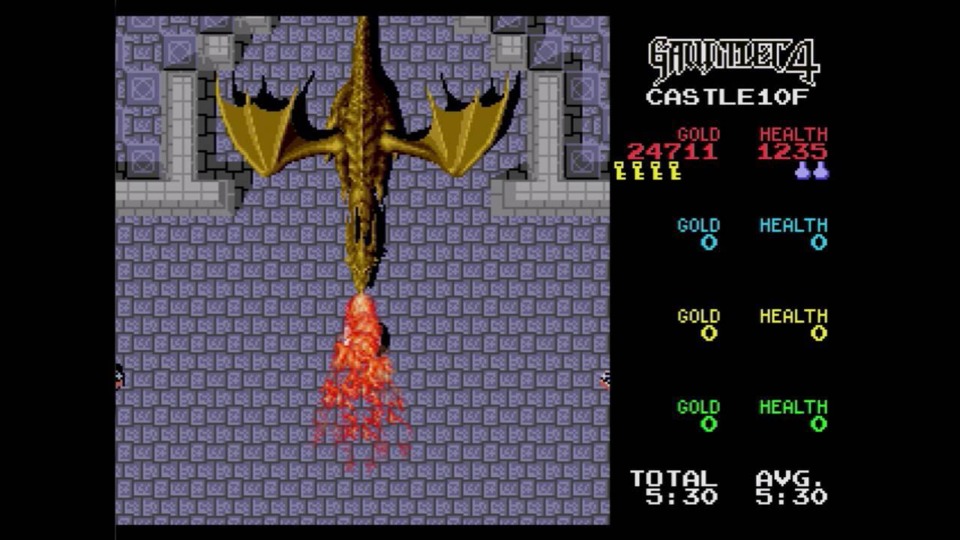
I love the Gauntlet series. Something about the franchise always manages to tap all of the pleasure neurons in the lizard portions of my brain, and I have fond memories of wasting away stacks of quarters on the arcade games. It was the first cooperative game I played and genuinely enjoyed. The need to communicate with partners, and sometimes total strangers, led to an endless list of parasocial interactions I can't forget. Furthermore, I am, by my own omission, a frequent defender of Gauntlet Dark Legacy, even if I recognize the game doesn't stack up to Power Stone or even the original Smash Bros. It doesn't matter. I played a shit ton of that game with my brother and sister, and entire audio cues and environmental set pieces are forever burned into my mind. 2022 was when I took the time to play one of the few games in the series I had never played, Gauntlet 4, and it was one of my biggest surprises of the year. Gauntlet IV on the Genesis/Mega Drive might be the most lovingly made 16-bit-era console port of an arcade game, and yet, no one knows about it.
Right from the rip, the game has one of the best soundtracks in the Genesis catalog. Whatever you think about the console conversions of Namco or Sega classics of this era, Gauntlet IV trumps all of them. That's because it was done by Hitoshi Sakimoto, who would later compose Final Fantasy Tactics and Final Fantasy XII. When people say they think the SNES has better music than the Genesis, I roll my eyes at them and pull up tracks from this game, Strider, Streets of Rage II, and Revenge of Sinobi. The game also has two different modes of play. The first is a shot-for-shot recreation of the arcade game with all of the familiar trappings but with the added comfort of being able to continue. Alternatively, a new quest mode features multi-level dungeons, NPCs, upgrades, persistent stats, and a mission structure that culminates in a final fifth dungeon. If the idea of an RPG spin of Gauntlet didn't sound enticing enough, what if I told you it was entirely playable in co-op? It's a largely forgotten platform highlight that I want to discuss on the site in some capacity in the future.
Fallout: New Vegas
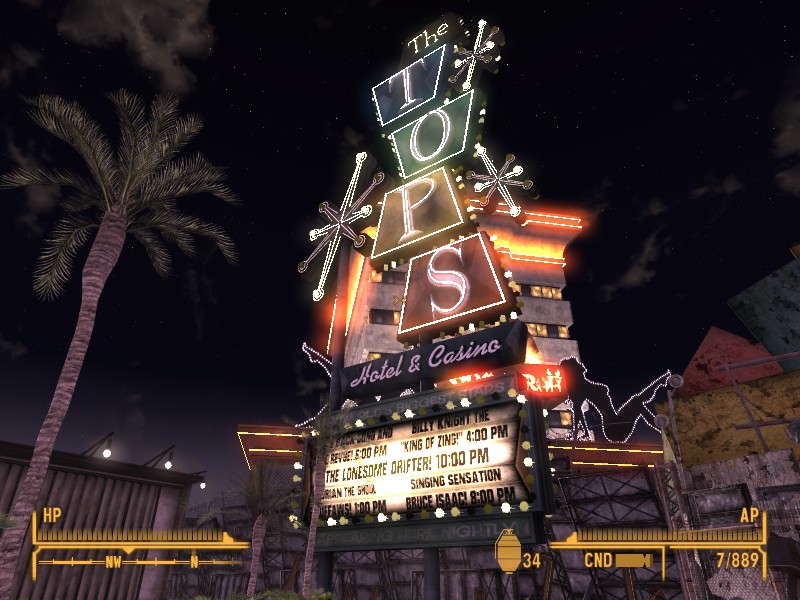
Including Fallout: New Vegas in this section is a cheat because I have an outline of what I want to write about for this game. Unfortunately, I did not have the time to proofread and publish it before we got to the maelstrom that is GOTY season. For years, I have been amused by the growing proportion of people that point to New Vegas as the "last true Fallout game." That's because I remember when the game was released, a swath of the internet wanted to have the heads of those that reviewed it positively and brandished the launch window version of New Vegas as "false advertising." After all, the game launched hot and was a buggy nightmare to play. That leads me to my possible blog premise of wondering when the CRPG community deified New Vegas. When did the apotheosis of another hallmark of "classic" Obsidian releasing a partially complete game happen, and why? I'm old enough to remember when the GameFAQs and NeoGAF boards put Obsidian in the same category that we often put modern Bethesda into today of constantly getting a pass on publishing games when they still needed an extra year or two.
And I don't get the mindset that New Vegas somehow represents a more "authentic" Fallout experience than Fallout 3 or 4. Go back and play Fallout 1 or 2 and realize that they have more in common with Bethesda's tabula rasa, fill in the blanks with your headcanon, template than the guided and linear approach of Obsidian. Sure, there's something to be said about liking Obsidian's writing and way of conveying a story more than Bethesda's. However, leaving dialogue choices plain and up to the player to discern their context was what the Interplay games did. Likewise, you wouldn't precisely exalt the first two titles in the franchise as storytelling masterpieces, either. So, I return to my central question. When did the apotheosis of New Vegas start? Was it after the game's mod community salvaged the game? Was it after Skyrim made millions of dollars and became an easy target for CRPG "purists?" Was it after people were disappointed with Fallout 4? Was it after the disastrous launch of Fallout 76? You tell me because I'm still sitting here scratching my head, and I think there's something to this idea worth exploring in more depth.
Xenosaga Episode I & Xenosaga Episode II
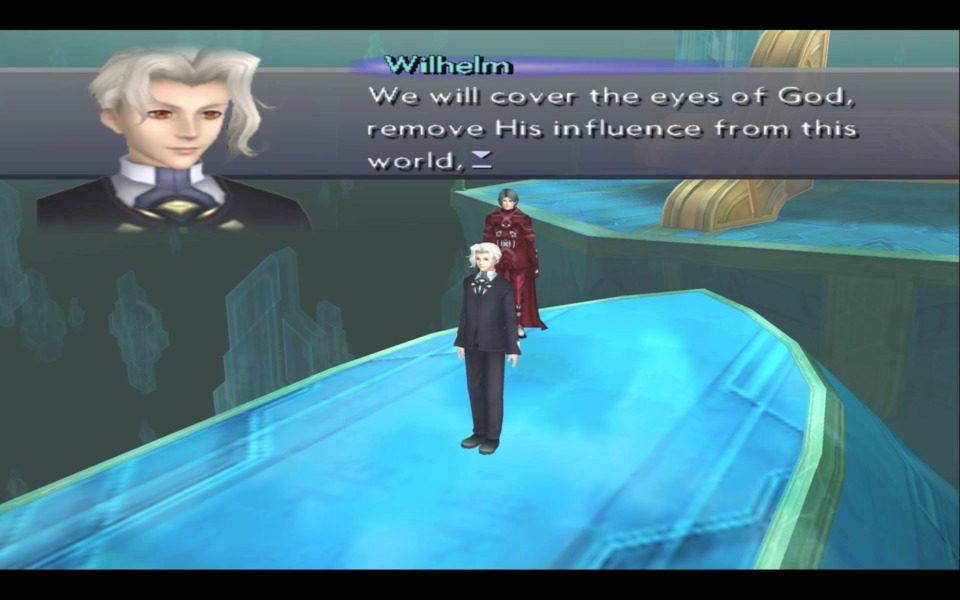
Xenoblade Chronicles 3 got a significant amount of GOTY buzz this year, and as someone who has been following the works of Monolith Soft for a while, I find it comforting. The studio has gone through a lot of upheaval in the lead-up to its buy-out by Nintendo, and it brings me a lot of joy to see them get the budget and PR support they deserve. However, while their continued success warms my heart, I still cannot help but lament the eternal purgatory their older titles seem to exist in right now. Case in point, I would DIE for a modern re-release of the Xenosaga games, but that's likely never going to happen with Monolith in Nintendo's camp, but the series is tied to Namco and Sony. It's unfortunate because the Xenosaga games, at least in my mind, prove that Monolith is pulling its punches with the Xenoblade games considering nothing in the latter series has come close to the pure anime-ass insanity of the Xenosaga trilogy.
Holy shit. The story highlights of the Xenosaga trilogy need to be seen to be believed. Did the Xenoblade games ever show an android robot lady opening their navel to shoot a laser beam to kill a giant space monster? Is there any overt Jesus Christ connection to the characters of Xenoblade Chronicles 3? Do any of the Xenoblade games have a comically evil anime-ass villain that takes off his head after cutting off his hand while torturing a child? What about Greensleeves playing while you explore a brain matrix? Is that in the second or third Xenoblade game? How many of you that profess love for the Xenoblade games have seen the cutscene in Xenosaga I depicting Cherenkov's backstory? I don't say this point lightly, but the Xenosaga games "out Kojima" Hideo Kojima. Every cutscene is dense, goes on for over ten minutes, and is steadfast in confidence that its heavy-handed storytelling can only be treated with deathly serious observing eyes. And I cannot emphasize enough how if you combine all of the first game's cutscenes into a single video, it clocks-in over seven hours and that number gets bigger with the second and third games. It's fucking astounding.
I Played These Games, But I Have Nothing To Add To The Conversation That Has Not Already Been Said
Might and Magic VI: The Mandate of Heaven
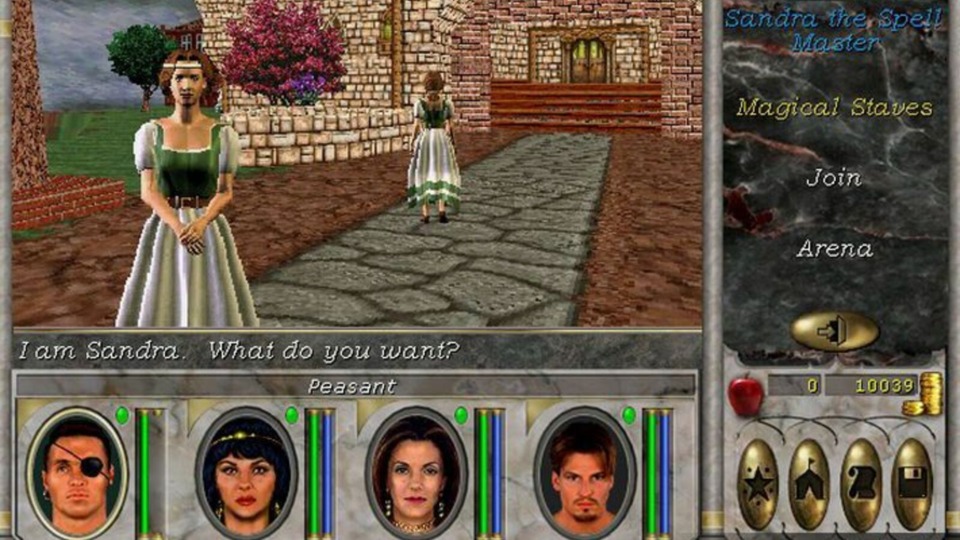
As hinted at in the first part of this mini-series, I have a tradition of picking random video game genres and seeing how far back in time I can go with that genre before I no longer feel like I can have a fun time. Despite being DOS-based CRPGs, the Might and Magic series is the furthest I can go with any individual video game franchise. Might and Magic III: Isles of Terra is where I draw the line, but if you challenged me to play the first two games, I'm confident I could still do it. This talking point leads us to Might and Magic VI: The Mandate of Heaven, a game I thought I would dislike but did not. With VI being the game that trashed hex-grid movement and pixel art for digitized graphics, I thought I was up for a rude awakening but was pleasantly surprised to discover the contrary. This game was fun and breezy when it first came out and is still one of the more welcoming intermediate CRPGs you can give someone trying to ease into the genre.
One of my all-time favorite parts about this game is its pacing. Every storyline quest melds perfectly with the previous one, and the game uses gear checks to incentivize completing side quests or general exploration of environments. The job system is highly satisfying, with only a few that I don't enjoy using in a normal playthrough, and the way you draw utility from those jobs by finding trainers or random NPCs is far less fiddly than it might sound on paper. Also, the Might & Magic series often doesn't get credit enough for being fun, silly games with you defeating monsters that worship sheep or fixing computers by going on quests for RAM. I will never understand the outcry over The Forge for Heroes of Might & Magic III, considering Might & Magic VI gives you an alien laser gun at the end of the game. It's cool shit. If I have two niggling nitpicks, I wish the game were still grid-based and the real-time mode did not exist. If you have yet to play it, give it a shot, and I promise you will not be disappointed.
Legend Of Dragoon
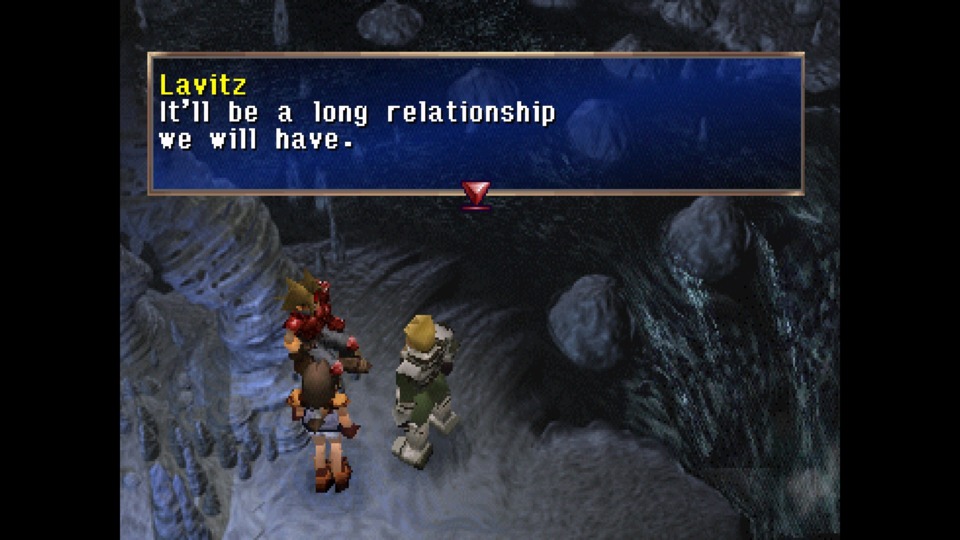
For the longest time, I had a theory about the creation of Legend of Dragoon that I finally wanted to put to the test. For years, if not decades, I believed that Legend of Dragoon was a vanity project spearheaded by Sony to try and one-up Squaresoft after the latter moved more console units than their internal studios. Up to that point, Japan Studio didn't have a track record of making great RPG experiences and giving them the task of creating a JRPG to rival Final Fantasy VII reeked of executive meddling. A painfully "okay" game with such stunning production values couldn't possibly have any other reason for existing; at least, that's what I thought. As I played the game's first disc and did more research, I discovered my theory was utterly wrong, but that did not change my overall feeling the game is boring and unable to justify its long playtime.
To the people bound to fight me about my thoughts about Legend of Dragoon, I get it. The game's flashy visuals and intricate animations are still impressive today and perfectly exemplify the PS1 aesthetic. However, those animations slow the game to a crawl, and I would even contend Legend of Dragoon is more over-animated than Chrono Cross. I timed this, but the opening camera pan at the start of battles is six seconds, and the end battle animation is eight. That means after ten random encounters, two to three minutes of your life are down the drain, simply waiting for the game to transition in and out of battles. The Addition system is passable, but it's not enough to justify being the lynchpin of an entire JRPG, especially when its depth is lacking. Also, the fact Legend of Dragoon is optimized for CRTs means playing it on a modern monitor is not the best experience. But all of that aside, I think I "get" why people fondly look back at this game and understand why people want to see the game remastered. Nothing quite looks or plays like it, and it is very much in line with the 90s Saturday morning cartoons many of us still think about nostalgically.
Hydlide (Including Virtual Hydlide) & The Tower Of Druaga
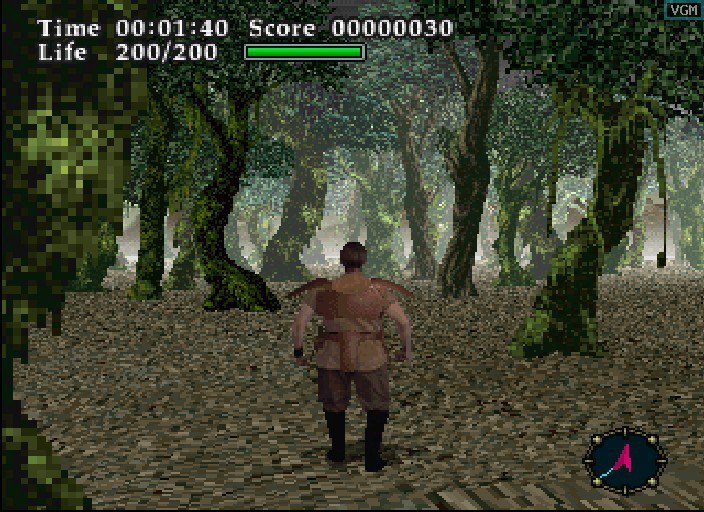
This game falls into the "borgmaster beat me to it" category if we are being honest. Around November, I played every game in the Hydlide franchise, hoping to see if the series ever made a good game. I put the Hydlide franchise in the same group as The Tower of Druaga series. Both are essential and acted as formative titles that led to greater and better things. The entire Souls sub-genre is so indebted to The Tower of Druaga and Hydlide games that it is not even funny. However, there is no single game bearing either series namesake that you should actively seek out to understand that historical legacy because they are all the most miserable video games ever made. MAYBE, check out Hydlide 3 if you need to know why some in the JRPG development scene continue to hold on to the series as a legacy tentpole franchise, but feel free to punch out after the second dungeon. With The Tower of Druaga, you are at the mercy of the game not randomly caving your teeth in unprompted. Druaga never appropriately prompts you as to what it wants you to accomplish at each level, and even when you do know what it demands, you often end up doing random bullshit that leads to endless death spirals. I managed to get to level eight out of sixty and consistently struggled with the quest involving getting a magical sword. And by the way, the game throttles you down a story when you attempt to progress further up the tower after skipping a quest item or failing a mission. It's utterly fucked!
When it comes to Virtual Hydlide, what sometimes gets lost in the mix is the game's size. The in-game world is tiny, so its speed runs are hilariously busted. However, with the game lacking any leveling mechanics or sub-systems, you are better off avoiding combat entirely and saving yourself for the required bosses at the end of every temple or cave. The game barely runs at a stable framerate and is notable for what it doesn't have rather than what it does. It shit-cans the franchise's then-unique morality and magic systems and ties everything into equipment. However, because it relies so heavily on weapons, when you get a new sword or mace, everything around you becomes pointless until the next gear check. You spend large swaths of the game moving from one local to the next, wasting away everything that stands before you, leading to an incredibly monotonous and boring game. But again, if you want the definitive blog about all of this, check out borgmaster's post on the site.
I May Write About These Games In Two To Three Years, But I Make No Promises
NBA 2K16 (But Only The Story Mode By Spike Lee)
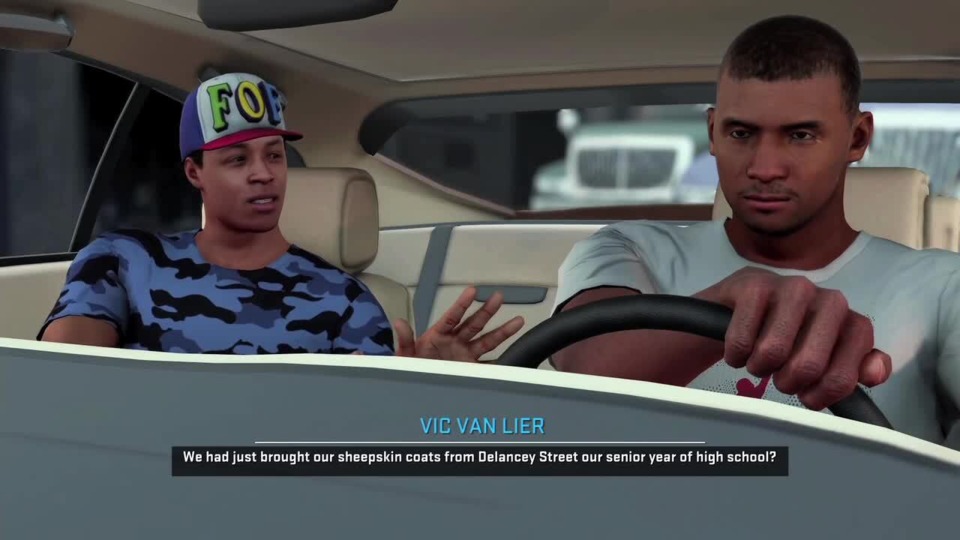
Whenever I say this to people who only play sports games, they get angry at me, but I'm confident about my stance. Sports games are RPGs. If you are playing a Madden or EA Football game and rejiggering the stats of a player or using cards to create a fantasy team for online play, you are playing a role-playing game. Stop and look at any online Madden player's thought process when drawing up a new offensive play or defensive scheme. You can squint your eyes and realize that's essentially the same thought process someone like me goes through when fanning through hotkeys or battle menus when selecting attacks against an ogre or dungeon boss. That's why when people give the NBA 2K series a hard time for having weird fantasy story modes, I don't get it. These modes are completely on par with the RPG sensibilities innate to all sports games.
However, NBA 2K16 is very special. As many of you might recall, the game has a story mode written by Spike Lee, and it delivers on its reputation of being one of the most harebrained sports stories short of Suda51's Super Fire Prowrestling Special. I know Alex detailed the insane plot twist at its end, but other bizarre story moments are just as praiseworthy. And I say "praiseworthy" the same way I would use that word when recalling Tommy Wiseau's The Room. How could one forget about the owner of your team being an overt racist that looks down on his players as nothing but servants to his million-dollar enterprise? What about the player character's agent, Dom Pagnotti, being a walking Italian-American stereotype? And what about the awkward car scene where it is revealed the player character was an accessory to second-degree murder, which the game does not scaffold toward or foreshadow at any point? It's SOMETHING, and I continue to be amazed the NBA gave it their seal of approval, considering how poorly it depicts the inner machinations in the league.
Eternal Sonata
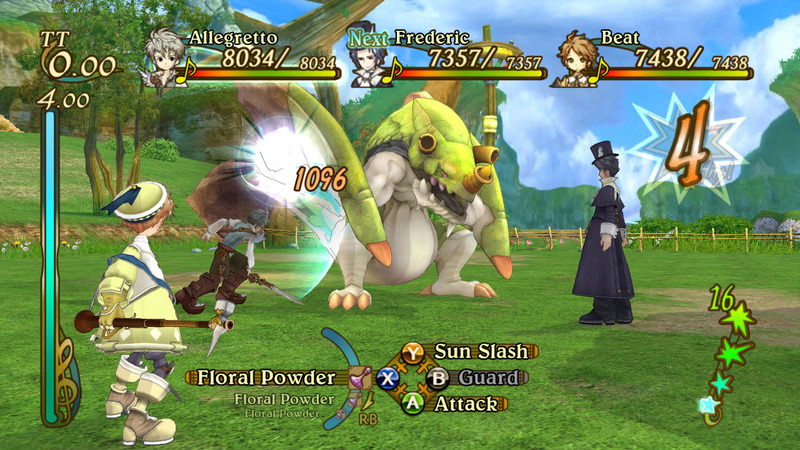
As you might discern from my loving brief on Xenosaga, I love JRPGs that aim for the stars and miss. That's why I still hold Final Fantasy VIII in higher regard than most Final Fantasy fans and why I cannot help but love Chrono Cross. Eternal Sonata is a wild story and compares favorably to those two games by sheer metric tonnage of "weirdness." Reading the game's Wikipedia bio is enough to explain why that is the case. A game taking place in the dying dreams of a real-life musician, in this case, Chopin, and flinging you into a fanciful anime isekai world is fucking bananas. And the twists and turns that happen therein are beautiful and unique in their own right. There's a cutscene where a character you barely have met gets assassinated and slips in and out of consciousness to have a ten-minute death eulogy about how much they will miss their companions. There's a subplot involving the prospect of a time loop that never gets resolved. Then, there are the PowerPoint presentations about the life and times of Chopin that come out of nowhere. Finally, there's the villain, who is the most boilerplate anime villain you will see. It's A LOT, and I love it for that reason alone.
Unfortunately, I cannot wholeheartedly recommend you play Eternal Sonata. The game's dungeons are painfully linear but go on for hours at a time and add virtually nothing to the experience. The combat is also wildly all over the place and has too many sub-systems to be entirely enjoyable. There's a night-day system that is more annoying than satisfying, and fiddling with inventory items or equipment in the menu is never gratifying. The blocking mechanic, however, almost breaks the entire game for me. When you enter combat, it is vitally important to take note of musical cues or visual prompts emanating from random encounters or bosses. If you don't, you will either end up dead or so far back in health that you might as well restart. All this information is poorly communicated to the player because the camera is often pulled too far back from the action, which can lead to significant roadblocks that are no fun to get out of if you do not know what to do. That said, I genuinely need all of you to watch that death eulogy I mentioned earlier because it's the most incredible thing I have seen in all of 2022:
Quest 64
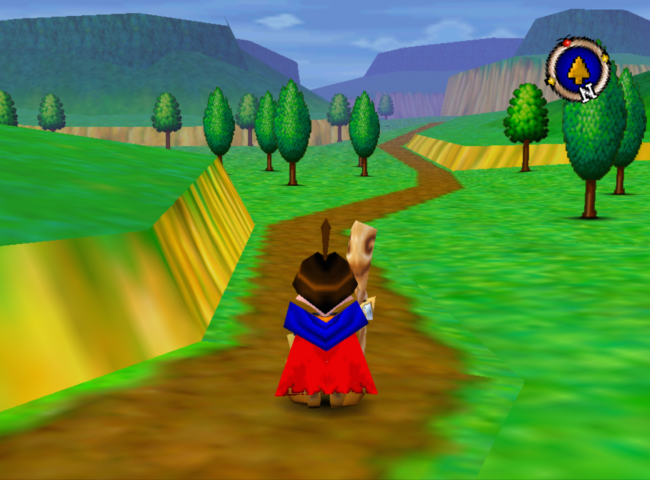
I'm not going to spend too much time talking about Quest 64, but here's where I stand regarding the game. The Angry Video Game Nerd lied to you. I know, shocking. Nonetheless, Quest 64 is better than its reputation might have you believe. That's because the game is clearly made for children and isn't even the worst "one of those." When you get down to brass tax, the game does a more than admirable enough job of providing RPG newcomers the basic idea of what the genre has to offer, and in an incredibly low-stakes package. The penalties for player death are non-existent, and the game's linear structure makes it impossible not to know what you need to do or where to go. The game's magic system and drawing mechanics are straightforward. It's not at the top of or even on my list of RPGs I would give someone new to the genre, but I can't fault anyone who would do so. The fact Dan and Jeff have spoken about the game in the same breath as Bubsy 3D or Sonic 06 as a future Spite Club pick has me moments away from writing a three-paragraph scree on why Quest 64 isn't what they are looking for for that series. Ultimately, as the kids on Fortnite like to say, the game is very "mid," but nothing more.
Unlimited SaGa
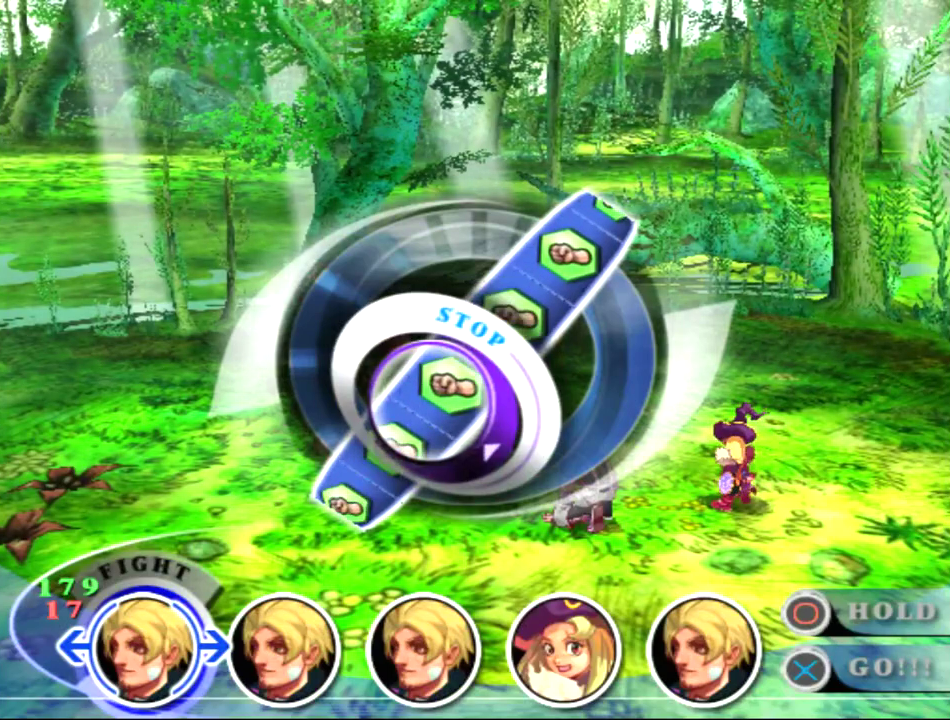
Calling certain video games a "roulette wheel" is a bit of a tiresome idiom. Every video game has a design philosophy built into it to keep you coming back for more. Even bad games have a kernel where someone tried to create an experience they thought would keep you entertained. However, Unlimited SaGa is a goddamn roulette wheel. It is barely a video game and has the noted distinction of rating lower than The Guy Game on Metacritic. And you know what? That's completely earned because, despite more effort going into Unlimited Saga, it is one of the least functional games to ever come out of Square-Enix. A board game guides the player's movement, and the structure of that board game is on par with a Jinsei Game with random events that inflict random bullshit on you when you least expect it. The combat is a slot machine, and that's all that needs to be said about why it sucks. Seriously, look at the screencap above. Whenever you want to attack an enemy, you must pray that the slot machine will land on what you want. Every. Single. Battle. Also, junctioning spells to any character is the most complex and Byzantine bullshit imaginable. I have played some bunk JRPGs in my lifetime, and I have to stop and think hard if this game is worse than Lunar Dragon Song. For those who understand the gravity of that last sentence, I tip my hat to you.
However, any discussion about Unlimited Saga cannot happen without a cursory examination of the mastermind behind it, Akitoshi Kawazu. Hardcore Gaming 101 put it best when it declared Kawazu as a brain in a jar in Square-Enix's basement that the company's leaders occasionally refer to when they are in a bind. However, while the brain doesn't ask for much day-to-day, it will pull owed favors to get the green light for games that would never court executive approval in any other circumstance. After striking relative gold with the SaGa series, Kawazu flexed all of his credibility within Square-Enix to make a game that only made sense in his mind after obsessively playing Ultima IV and Advanced Dungeons & Dragons 2nd Edition. That game ended up being none other than Unlimited Saga. Kawazu's "blank check" that he got for over twenty years of industry success got spent to make Unlimited Saga. The one time he got final-cut privileges was for this nightmare game, which explains a lot. This game is the video game equivalent of the Cones of Dunshire. It has everything, and that's a problem.
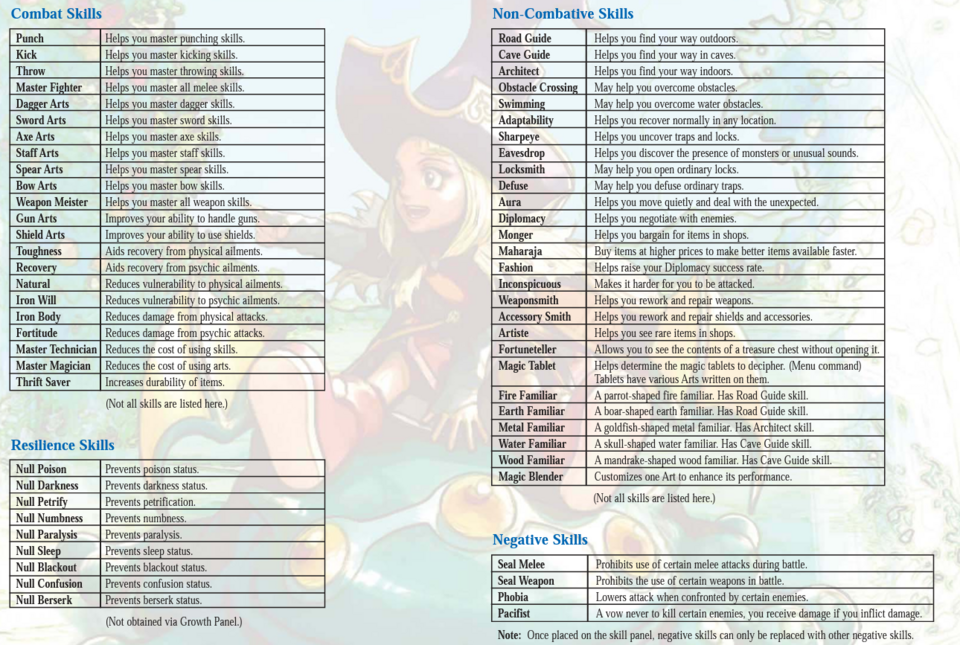
NOPE! THESE GAMES ARE A HARD PASS!
Secret of the Stars (aka Aqutallion)
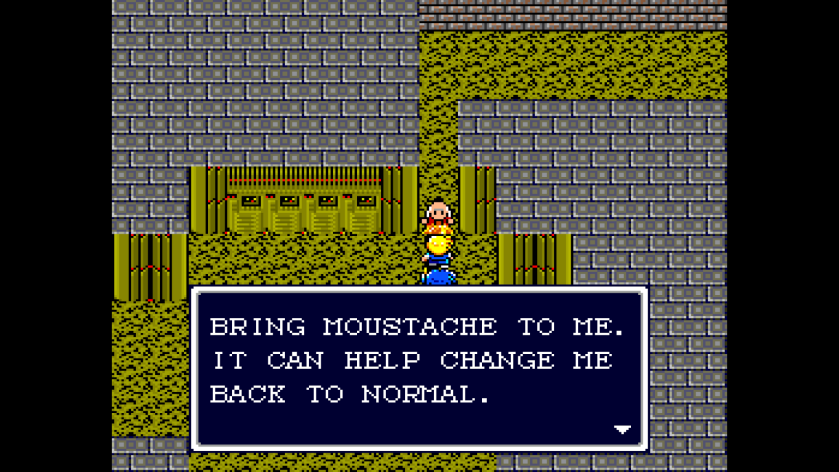
Oh, Dragon Quest clones. They are a dime a dozen and rarely ever arise above middling filler. In my books, there are good DQ clones, there are bad DQ clones, and then there are weird DQ clones. Secret of the Stars is thoroughly in the second camp, though it sometimes oscillates into the third. Its central premise is that it forces players to take control of two parties and these two parties need to work in tandem with each other whenever exploring dungeons or towns. Regrettably, the synergy between these two parties is next to nothing, and if you are not careful, you can even have one group block the pathway of the other and be completely stuck. Also, the idea of needing to grind DOUBLE in an otherwise incompetently made Dragon Quest clone is the most fucked video game value proposition imaginable. Imagine you are playing Dragon Quest V, and now imagine needing to play every level or set piece twice just to keep two siloed groups on par with what the game is throwing at you. That is how Secret of the Stars operates. The only thing worth seeking out about the game is its hilarious scuffed translation which you can get an idea of from the screenshot I have provided above. Otherwise, after about five hours, I bounced off this game.
Aidyn Chronicles: The First Mage
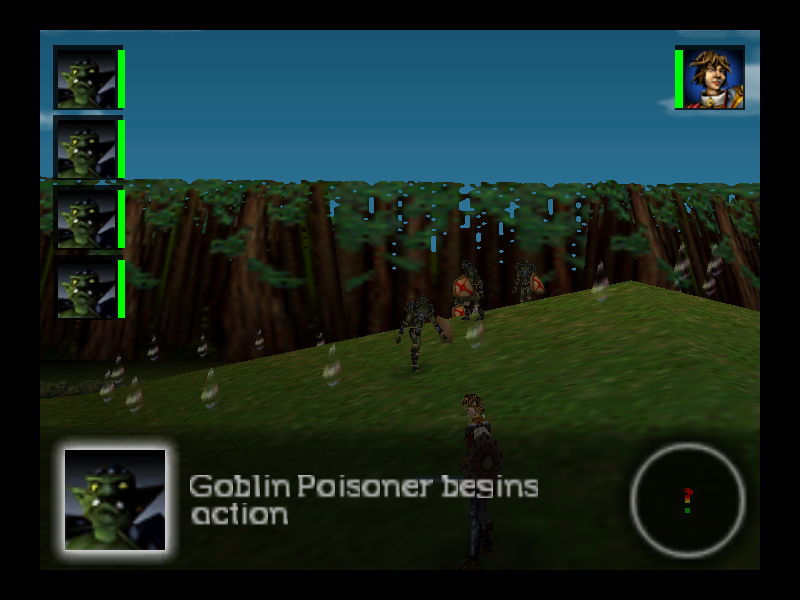
If you are interested in experiencing the slowest start to an N64 game, look no further than Aidyn Chronicles: The First Mage! The game's starting cinematic and castle are mind-numbingly slow and do virtually nothing to prepare the player for the onslaught of mediocrity they are about to witness. Everything I said about The Legend of Dragoon playing as if it existed in a vat of molasses applies to Aidyn Chronicles. However, Aidyn Chronicles has the added detriment of doing one of my all-time most hated "RPG Cardinal Sins." When attempting to complete quests or explore new environments, enemies will spawn or move around in the world in real-time, and you will often physically bump into them. However, when you spawn into the game's battlefield, you and the enemy will suddenly inhabit two opposite sides of a fighting arena and need to spend two to three turns simply closing that gap. It fucking sucks, and I hate it whenever games do this. I highly recommend Mento's write-up if you want to learn more about this game and why it's not a great time.
Ultima IV: Quest of the Avatar
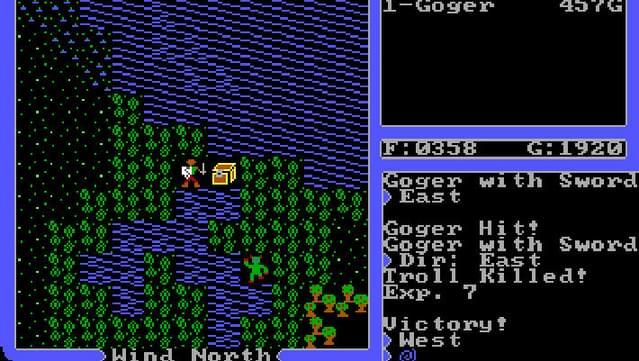
Remember when I talked about the Ultima adventure game spin-offs and mentioned I would talk about Ultima IV? Well, we have now reached that part of this blog! I respect Ultima IV. The game still stands as one of the few RPGs ever made where the player isn't aiming to kill a big monolithic evil. It instead asks players to learn about its code of ethics and then exemplify those ethics in everything they do in the game's world. Sure, there are goblins and trolls to defeat in battle, but even then, you must consider how much to press your attacks or otherwise build up a cruel reputation among the game's peons. For something made in the 1980s, it is an incredibly nuanced system and far more dynamic than you'd think. Unfortunately, due to it being such an old game, its systems are not easily determined, which also applies to its overall design. Dungeons and towns have entire bespoke pathways hidden behind invisible walls or trapdoors. The quest design is obtuse enough that you never feel like you have a grasp on what the game wants out of you. I do not want to call the game "directionless," but I cannot imagine a world where I complete the game without at least two to three game guides providing step-by-step directions. It's worth a cursory look for any adventurous video game historian, but not for the faint of heart.
My 2022 White Whale
Arcanum: Of Steamworks and Magick Obscura

I tried. I really tried to complete Arcanum: Of Steamworks & Magick Obscura this year. I even set out to finish the game as a 2022 New Year's resolution. I listened to interviews with Jason D. Anderson and Leonard Boyarsky about the game's design process to get my spirits up. I even used my favorite cheese tactic in the game by speccing my character to specialize in throwing and incendiary weapons so I could murder everything with nothing but Molotov cocktails. But, alas, I failed. Arcanum is too fucking long and too much of the same thing over and over again for my tastes. It is a game built tall, not wide, and is moments away from collapse. Many of the game's dungeons embark on frustrating design tropes like a Dwarven cave that arbitrarily snakes around in a serpentine pattern so random goons can charge after you ad infinitum. The story's first half recycles a "monster of the week" format that barely cuts it for nationally televised cartoon shows. On top of that, while there are some exciting subplots or side quests, the main story takes its sweet time to kick into high gear. It's simply too much game for too little gain for hours.
However, I don't want anyone to think I am calling Arcanum a "bad" video game. While playing it with the fan patch is incredibly important, its ambition is through the roof. The number of jobs, abilities, character customization options, and build paths available at your fingertips is astounding. That treasure trove of player options is a double-edged sword considering specific skills and build paths are better or more viable than others. Arcanum is guilty of ye olde CRPG trope of a handful of jobs and skills being outright useless. Discovering a character you have spent hours making will never get you to the end of the game is aggravating. All that aside, it is a remarkable world with larger-than-life characters that make most of the journey worth taking. Nonetheless, if you have managed to see its credits, you are a far better person than me.
